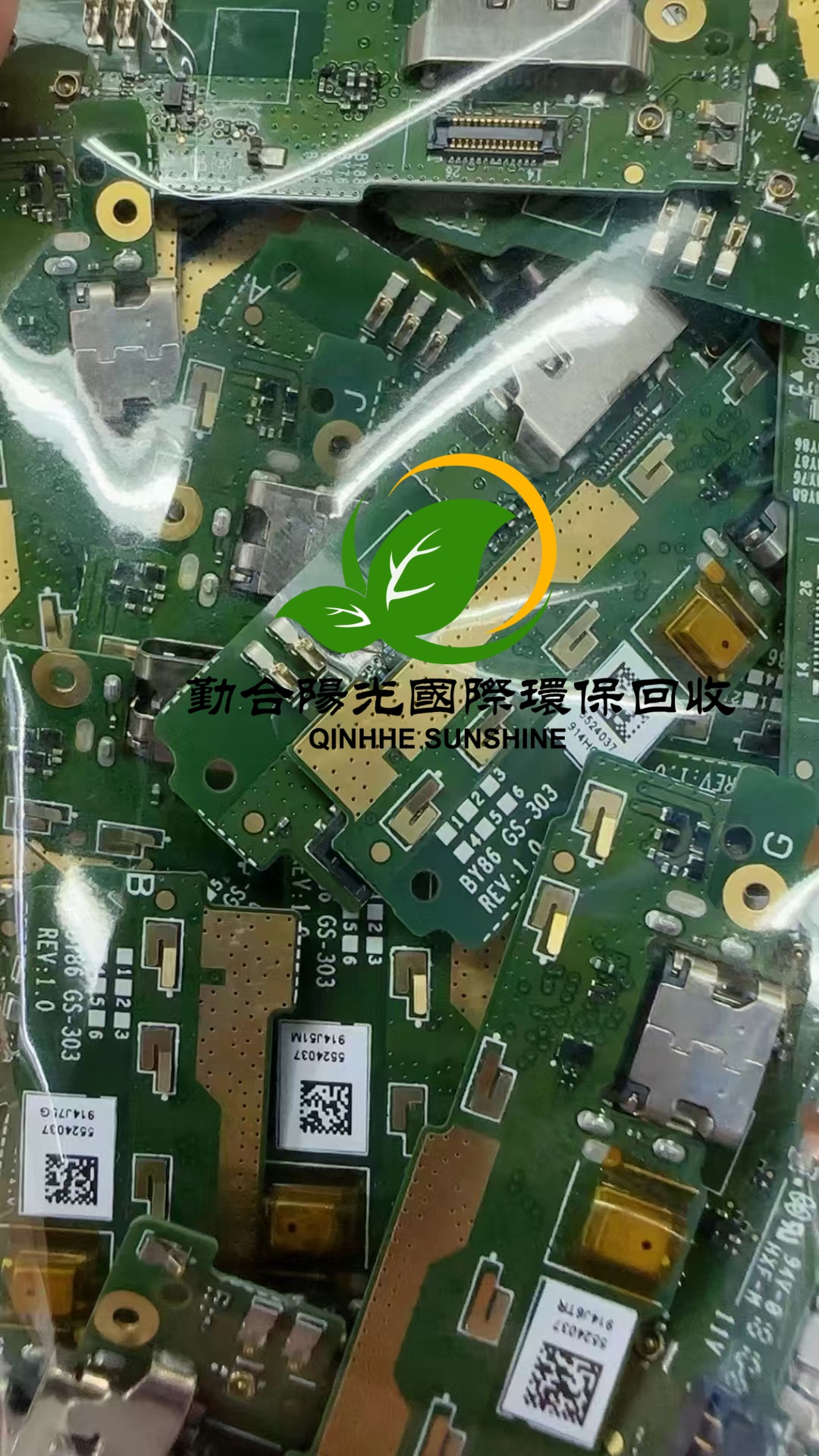Recycling Electronic Inventory: Building a Bridge for Resource Circulation and Sustainable Development
In today's era of rapid digitalization and technological advancement, the electronics industry is experiencing unprecedented growth. However, with the continuous innovation of technology and fluctuating market demands, the accumulation of electronic inventory has become a significant challenge for many enterprises. Recycling electronic inventory, as a forward-looking and strategic initiative, is not only crucial for the healthy development of enterprises but also plays an irreplaceable role in promoting resource circulation, environmental protection, and the sustainable development of the entire industry.
Electronic inventory encompasses a wide range of items, including but not limited to electronic components, semi-finished products, finished goods, and production equipment. The accumulation of these inventory items, on one hand, occupies valuable storage space, leading to the ineffective immobilization of capital and increasing operational costs and financial risks for enterprises. On the other hand, electronic components and other inventory items often contain precious metals such as gold, silver, and copper, as well as various substances that pose potential environmental hazards. If not properly managed, traditional disposal methods such as simple landfilling or incineration can cause severe pollution to soil, water, and air, posing substantial threats to ecological balance and human health.
The core value and significance of recycling electronic inventory lie primarily in the efficient circulation of resources. Through professional and scientific recycling processes and technologies, valuable metals and components can be accurately extracted from discarded electronic inventory, allowing them to re-enter the manufacturing chain and achieve resource regeneration and recycling. This not only helps significantly reduce enterprises' reliance on primary resources and alleviate resource scarcity but also, from a macroeconomic perspective, promotes the optimal allocation of resources across the entire industrial chain, enhancing the overall competitiveness and sustainable development capabilities of the industry.
From the perspective of enterprise operations and strategic development, recycling electronic inventory opens up a new path for cost control and risk management. For enterprises with inventory accumulation, recycling idle electronic inventory can quickly revitalize assets, recover funds, optimize financial structures, and enhance liquidity and risk resilience. At the same time, establishing long-term and stable partnerships with professional electronic inventory recycling companies can help enterprises build more flexible and efficient supply chain management systems, achieving precise alignment between production and market demands. This effectively prevents the recurrence of inventory accumulation due to market prediction errors, thereby improving overall operational efficiency and market responsiveness.
In the field of environmental protection, recycling electronic inventory is undoubtedly a powerful measure to safeguard our green planet. Electronic waste contains heavy metals such as lead, mercury, and cadmium, as well as harmful substances like brominated flame retardants. If not properly treated and directly released into the environment, these substances can accumulate in soil and water bodies, eventually entering the human body through the food chain and causing severe damage to the nervous, immune, and reproductive systems. Professional electronic inventory recycling companies employ advanced harmless treatment technologies to safely separate, transform, and dispose of these harmful substances, minimizing their negative impact on the environment and preserving clean skies, clear waters, and fertile soil for future generations.
To ensure the healthy and orderly development of electronic inventory recycling, it is essential for governments, enterprises, and society to work together to build a comprehensive recycling system and a standardized market environment. Government departments should fully leverage their macro-control and regulatory functions, accelerate the formulation and improvement of relevant laws, regulations, and policy standards, clarify the qualification requirements for electronic inventory recycling enterprises, standardize recycling processes, and set environmental emission standards. Strengthening the supervision and management of the electronic waste recycling industry and cracking down on illegal dismantling and dumping of electronic waste will create a fair and orderly market environment for the development of the electronic inventory recycling industry.
As the core entities in electronic inventory recycling, enterprises should actively assume social responsibilities, continuously increase investment in technology research and development, and equipment upgrades, introduce and innovate advanced recycling technologies and processes, and improve the efficiency and resource utilization of electronic inventory recycling. At the same time, enterprises should strengthen internal management, establish sound quality management and environmental management systems, and ensure the standardization, standardization, and harmlessness of the recycling process. Additionally, electronic inventory recycling enterprises should enhance cooperation and communication with electronic manufacturers, research institutions, and financial institutions. Through industrial alliances, industry-academia-research collaboration, and other forms, they can integrate resources from all parties, jointly promote technological and business model innovations in the electronic inventory recycling industry, and expand the market space and application fields of electronic inventory recycling.
At the societal level, it is essential to strengthen environmental education and science popularization, raise public awareness of the hazards of electronic waste and the importance of electronic inventory recycling, and guide the public to actively participate in the classification and recycling of electronic waste. This will create a positive atmosphere where the whole society pays attention to, supports, and participates in electronic inventory recycling.
Recycling electronic inventory is not only a practical need to address the current challenges in the electronics industry but also a long-term strategic choice to practice resource circulation and sustainable development. As we move forward together toward a new era of green, low-carbon, and circular development, let us fully recognize the significant value and profound importance of electronic inventory recycling. Driven by innovation and supported by cooperation, let us build a solid bridge for electronic inventory recycling, contributing wisdom and strength to the efficient circulation of resources, the effective protection of the environment, and the sustainable development of human society.
我的WhatsApp:69536972-郵箱:martin.hyq88@gmail.com


 繁體中文
繁體中文 简体中文
简体中文 English
English




 咨询热线
咨询热线 公司邮箱
公司邮箱 地址导航
地址导航

